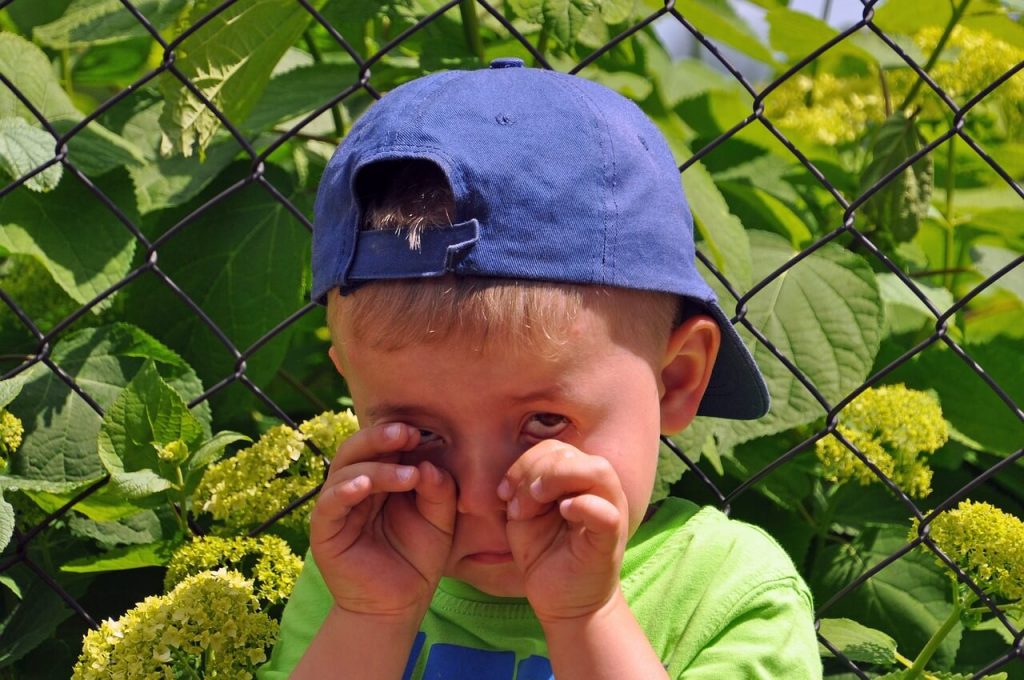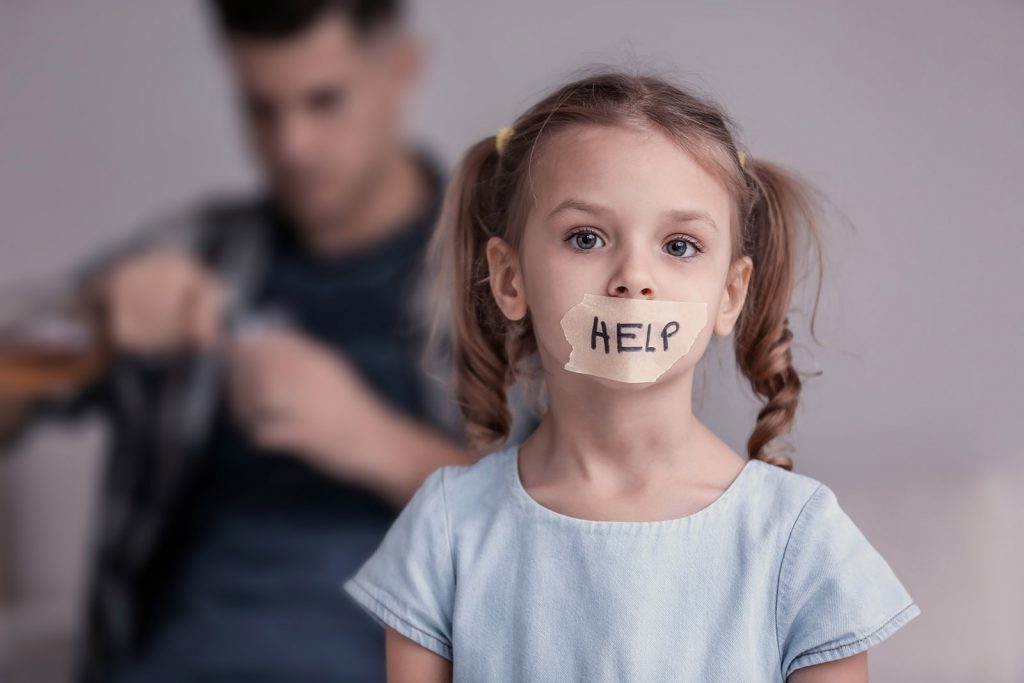How to Discipline a Child without Shouting, Belt, or Humiliation

Parents use discipline as a tool to encourage good habits in children. But can discipline be taken too far? How should parents teach self-control and proper behavior?
Keep reading! In this article, you’ll learn everything you need to know about how to discipline a child without shouting, belt or humiliation.
Contents:
- Punishment for Kids
- Bad Behavior: Why Child Isn’t Obeying
- Can You Punish or Scold a Child?
- Criteria and Reasons for Punishment
- 8 Forbidden Actions or How Not to Punish
- Punishments: How Is It Possible? 7 ‘Legal’ Ways to Punish
- 4 Ways of Influencing the Child’s Behaviour Without Punishments
- 15 Pieces of Advice for Parents
Punishment for Kids

Prostock-studio/Shutterstock.com
Punishment for kids is a result of the natural consequences that arise from a parent-child relationship.
Parents must develop effective discipline strategies that teach children good behavior or positive behavior.
It helps to come up with punishments for kids if you think about these 5 rules:
- Offer Unconditional Love. Your child must always know how much you love them, even when they misbehave.
- Make Clear Rules. Children thrive on clear expectations.
- Choose your Battles Wisely. Not everything your child does ‘wrong’ requires punishment.
- Be Firm with Rules and Have Realistic Expectations. If you make a rule and your child breaks it, they must receive the expected punishment.
- Focus on Praise. Remember to focus on what your child does well and encourage this behavior.
Notice that punishment for kids doesn’t include harsh punishments, physical or verbal punishments. Disciplining a child isn’t a form of corporal punishment.
Bad Behavior: Why Child Isn’t Obeying

Prostock-studio/Shutterstock.com
What happens when your discipline strategies don’t seem to help? Do you continue to tolerate their actions, devise creative punishment ideas, or take them to a psychologist?
Before adjusting your approach or taking a different course of action, you should first take yourself through the following steps:
- List all the encouraging words and phrases you use with your child.
- Make a second list of all the creative punishments you use when your child misbehaves.
- For each point in both lists, write down your reason for using those phrases or forms of punishment.
- Compare the two lists. Ask yourself which one is longer. Which list took you longer to come up with or write? Which list felt easier?
The point of these exercises is to help you better understand that teaching children what they’ve done wrong is crucial. It’s also equally important to reinforce when they’ve done a good job.
Why Do Difficulties in Upbringing Occur?

Prostock-studio/Shutterstock.com
There is not enough variability of methods for impacting the child (informational problem)
A parent may shout or hit their child as a form of discipline. In many cases, the cause of this problem is due to a parent receiving the same form of discipline as a child.
Misbalance of encouragement and punishment, where there is more punishment
When parents don’t offer a balanced mix of encouragement and punishment, a child will eventually stop trying or caring. The thought process here is, why should I bother when I will get in trouble anyway?
Unpredictability
Unpredicted behavior and changing punishment methods will prevent a child from understanding the results of their actions. In addition, unpredictability can cause increased anxiety in children, which only worsens their behavior problems.
Inconsistency
Like unpredictability, inconsistency in discipline occurs when different family members use different discipline strategies, without specific family rules.
Mismatch of the age and requirement from the child that the adult is asking for
The form of discipline must match the age and development of the child. For example, if a parent is offering a harsh punishment meant for older children to a toddler, the toddler will never meet the parent’s behavior standards.

Prostock-studio/Shutterstock.com
Neurological issues and developmental problems
Sometimes parents don’t see that there are developmental challenges behind a child’s bad behavior.
Hyperactivity
Hyperactive children have trouble obeying their parent’s rules because they can’t remember the instructions. Therefore, it’s crucial not to make demands or put too much pressure on the child.
Inconsistency of parental behavior and not clear rules for everyone
Clear rules help a child understand boundaries. If the rules aren’t clear, a child can break them without knowing or knowing they can get away with breaking them.
Different upbringing tactics in all family members
If every family member pursues different discipline tactics, it can create anxiety and moodiness in a child.
Overuse of prohibitions
Children need to explore the world, it’s crucial to their development.
When parents worry too much about safety and prevent their child from participating in activities, a child will act out to gain more autonomy.
Lack of attention from adults
A child who lacks attention from their parents will try to get some using all kinds of methods including, disobedient behavior.
Can You Punish or Scold a Child?

Prostock-studio/Shutterstock.com
If by punishment, you mean beating up and shouting—then, no. If we talk about prohibitions and methods of maintaining behaviour and set boundaries—then, yes. In any case, prohibitions should be present.
A full-fledged parent is not the one, who is only praising the child but is that, who creates conditions for development.
Criteria and Reasons for Punishment
Because any punishment is an action that causes the suffering of the subject, there are several criteria that are very important while choosing a punishment method for the child:
- Actions that help to perform the punishment. There are many of them: from the sign of disapproval or a simple verbal remark to harmful beating.
- Tools, which are used to perform the punishment. This can be a word or a belt.
- Legitimation. Ways of punishment justification, proof of their need, lawfulness and proportionality.
Each punishment generally has a goal. No one with a healthy mind is not punishing the child for anything, in advance, for prophylaxis or due to a bad mood. All punishments generally bring to three goals:
- To revenge.
- To scare the child, so they do not repeat similar actions in future.
- Long term changes of values motivation, behavioural changes.
8 Forbidden Actions or How Not to Punish

Prostock-studio/Shutterstock.com
What actions are considered forbidden? What can’t you do while punishing? Here are 8 forbidden actions, or ways not to punish a child.
Physical Punishment
According to a policy statement from the American Academy of Pediatrics, it’s crucial to focus on teaching children good behavior instead of punishing bad behavior.
Research also shows that physical punishment like slapping or spanking doesn’t correct children’s behavior.
This study shows how the more parents spanked children, the more they misbehaved, which generated a negative cycle. The parents would start to spank their children more often, which increased the children’s bad behavior.
!!! Physical punishment is an ineffective way of upbringing—it contributes to the maintenance of ‘punishment subculture’ (pugnacity, identification with aggressiveness). Aggression can only generate aggression or fear as a way of suppressing aggression. Neither is conducive to building confidence and the ability to realize.
Humiliate
Laugh and criticise in public. This badly affects self-esteem and traumatizes the psychological state.
Intimidate on behalf of supernatural beings or on their own behalf
There is a risk that the child will be afraid and grow up anxious.
Insult using labelling words
‘You are messy’, ‘you are like…’ and so on—be careful with these words. The child may believe them and will take on this setting for the whole life.
Blame the ‘bad genetics’ (‘You are the same as your dad’)
Do not try to win back your personal conflicts with the current of an ex-husband on your child. The child cannot ‘out’ the existing ‘bad’ part from themselves. This is not something he has chosen, and he cannot take responsibility for even the worst parent. This tactic brings about a lot of shame in the person, which can manifest in various ways in well-being and behaviour.
Punish for something the child cannot control (for example, for enuresis, tics, motor awkwardness)
With these punishments, children become exhausted and desperate, trying to stop unwanted manifestations, and the symptoms are only increasing. Despite this, the upset is supported with shame and the child’s self-esteem greatly suffers.
Reject (not talk, ignore, deprive love), set up boycott, say ‘I don’t love you anymore’
For the child, this is the worst punishment. Parental rejection is accepted inside as a danger to life. It doesn’t go away with age and in many adults, we can see echoes of such behaviour in their childhood.
Infringe on basic needs
Never punish the child with food, walks, essentials and full development.
Punishments: How Is It Possible? 7 ‘Legal’ Ways to Punish

Prostock-studio/Shutterstock.com
Method of natural consequences
This method is the most unpainful and adequate at any age. For example, the child is 3, and he wants to weak winter trousers on a summer day. You can tell him why you think that shorts will be more suitable for the walk, but do not try to affect the decision. Give them the ability to see themselves that wearing these clothes will make them feel hot.
What has been learned with self-experience will be remembered for a long time.
Remarks
Often, instead of remark (when the parent draws attention to something), there are reproaches and criticism (‘You always have a mess’). It is important for this not to be a reproach, but rather a way of searching for problem-solving.
For example, ‘I got upset or angry when I step on the details of the constructor game that is all over the floor. Let’s think together; what can we do with it’.
Time-out
A method, when the child is taken away from the common space to a separate room and is left there alone for some time. This allows to increase the distance between an adult and a child and to ‘calm down’, to regulate emotions.
It is considered that for the child, who has been left in loneliness, the interval of the time in minutes that is multiple of their age, is not traumatizing. For example, for a 3-year old it is 3 minutes, for a 4-year old—4 minutes, and so on. A room where you take the child to ‘calm down’ should be bright and with a window. It cannot be a stockroom, toilet or another dark space.
Ignoring
Do not reward unwanted behaviour with attention. A good method, which is very difficult to complete—it is, generally, difficult for adults to keep self-control and not to react to the negative manifestations in the child’s behaviour.

Prostock-studio/Shutterstock.com
Deprivation
This is when the child is deprived of something important or wished as a result of bad behaviour. For example, there is a prohibition to watch cartoons or play computer games.
It is important for the child to know initial agreements, why and what has he been deprived of as a result of not obeying the rules.
For pre-school children, these rules can be drawn, or, if the child knows how to read, written on the plastic board or a piece of paper and hung on the wall. Often, children misbehave not because there are villains, but because they have forgotten.
Method of symbolic economics
This is a very well working method for average school-age children and teenagers. The actions that the child can be rewarded for and the actions that make them lose ‘points’ are decided at a family council.
Here, it is important to develop a system of rewards, accumulation and writing-off points. Then, the accumulated points can be exchanged for something valuable for the child (for example, buying a car toy, magazine or something else) or not (for example, extra 15 minutes of playing a computer game, table game with parents or a walk with friends).
In this method, it is important for the points not to be easily available, but not too difficult as well. In both cases, there will be a decrease in motivation.
Limitations
This method can be used when the child disobeyed important rules.
For example, for each breaking of rules, the bedtime starts 15 minutes earlier. That is, the child goes to bed not at 21:00, but at 20:45.
If you’re searching for a way to better keep track of your children’s behavior, Findmykids is a great option. It’s a parental control app that allows you to monitor their online activity, gps location and more. It even lets your child send an SOS message if they’re in trouble! And if you’ve taken away your kid’s internet privileges as a form of punishment, Findmykids helps you keep them on the right track.
4 Ways of Influencing the Child’s Behaviour Without Punishments

Prostock-studio/Shutterstock.com
Are there ways of influencing the child’s behaviour without punishment? Yes. It is encouragement and attention to good behaviour and changes in behaviour to the desired direction, even though this looks very simple (simplicity here is only on the first sight).
Attention to details
The most effective method of upbringing with the goal of changing the undesired behaviour of the child is to pay attention to them, to notice all that is considered as desired and to ignore violations and difficult behaviour of the kid.
The point is to provide the child with the attention and praise when they are progressing to the direction, where we want them to progress.
With this, it is very important to use ‘description praise’, and not judgemental. In other words, you have to say ‘I am proud of how polite you treated the kids at the playground today and teachers at the kindergarten. You managed to sit still when you really wanted to run around. I paid attention that you nearly haven’t made mistakes in your work; you tried hard to write everything neatly’ instead of ‘You have been a good boy today’.
Rewarding excellent behaviour
Rewarding always works better than punishing.
Highlight the virtues and strong side of the child
This will allow the child to rely on them. Ultimately, if we are talking the truth here, it is more important for the child to feel strong and to be able to cope with difficulties. Criticism and punishment are not going to help them to cope with it. We all need support.
Praise in advance
You can try to praise for the quality that the child does not have yet. For example, he is being rude and is often inattentive in communication, and you are, oppositely, noting to him that you are happy that they can be polite. Tell the child this sometimes.
If we treat people better than they are—they can have the motivation to become this and to grow to that treatment.
15 Pieces of Advice For Parents, Who Are Thinking About the Problem of Upbringing Methods and Child Punishment

Prostock-studio/Shutterstock.com
- Punishment should always be based on something.
- Punishment should be understood by the child
- Rules and boundaries give a feeling of self-esteem and safety.
- Parents should not always be the ones setting the rules and watching that they are obeyed. Harmonic participation of the child in setting up and obeying is also useful.
- Show your love more.
- Consider your child as the one who can do a lot and who is talented. Actions should give the feeling of power and abilities, but not helplessness and despair.
- Avoid cruelty.
- Be flexible in communication, think of methods, ways of saving the love and strong bonds with your child.
- Change the rules according to the child’s age and circumstances. Something that a pre-schooler is not allowed can be allowed to the teenager (for example, returning home at 20.00 and not at 18.00, or to go to bed a little later).
- Be consistent. Inconsistency of rewards and punishments is the way to neurosis.
- Separate personality and behaviour. If someone misbehaves, they are not bad. The action can be bad, but everyone can make a mistake.
- Do not threaten with unrealistic consequences that you cannot provide. Try not to threaten at all.
- There are set rules in each family. Do not try to find the prepared ones.
- The rules are for everyone—for adults and children.
- Do not pick. If you often feel irritated—try to understand what it is related with. Sometimes, the reasons are not in child behaviour, but in your health.
It is important to understand one thing: do not feel helpless if the child misbehaves. Try to find methods, ask for help from specialists. Try different approaches. Do not lose the person behind all these upbringing methods, even though he is still small. Remember that the most effective upbringing method is love, sympathy and self-development.
Проверьте электронный ящик



















